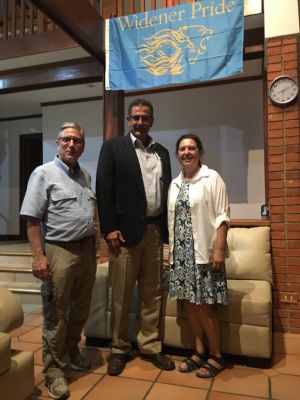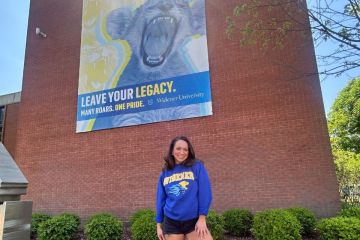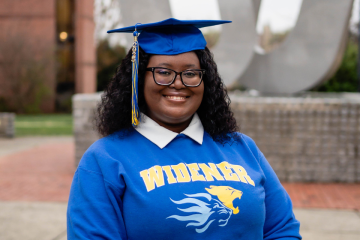A Model for Global Sustainability

As Widener’s coffee initiative in Costa Rica flourishes, the university has begun spreading its message of sustainability through collaborations with universities across the United States and abroad.
In January, a unique symposium – called Interdisciplinary Approaches to Integrating Sustainability and Global Engagement in the Curriculum – drew 16 academics from the U.S., Costa Rica and Peru to Widener’s CARES21 hub, a five-acre property which sits 20 miles north of San Jose.
The interdisciplinary group was led by Professor Stephen Madigosky, the chair of the Department of Environmental Science and Sustainability who created the concept for CARES21, and Professor of Spanish Beatriz Urraca, director of the Gender, Women and Sexuality Studies program at Widener.
Over four days, the faculty participants shared their own research and projects, while learning about CARES21 (Consortium for Agro-Ecological Research and Education in Sustainability in the 21st Century), which is Widener’s initiative to educate U.S. coffee consumers, especially on college campuses, about the sustainability issues concerning coffee from cultivation to cup.
“Sustainability involves three components – environmental, social and economic,” Madigosky said. “We would like to work with other universities in order to more efficiently promote changes on the ground that are directed toward the production of sustainable crops such as coffee and to address all aspects of sustainability across boundaries and cultures.”
For example, Madigosky served as a consultant to help Lycoming College in Pennsylvania start Warrior Coffee, which is produced in the Dominican Republic and sold on campus – a model that mirrors Widener’s environmentally-friendly WU Brew coffee.
Faculty from Lycoming attended the symposium and shared what they’ve learned since launching their coffee brand. Other participants included a large contingent from Universidad Nacional de Costa Rica who discussed their outreach projects in the Caribbean region that focus on the production of banana, yucca, papaya and more.
At the symposium, the group also met with José Joaquín Brenes Vega, the mayor of San Pedro de Poás, toured a coffee plant, and hiked the area around the lush, tropical property.
“The greatest value of the symposium was the potential for collaborating on a number of existing projects, all of which center around the broad theme of sustainability,” Urraca said. “The symposium highlighted the importance of stimulating a holistic approach for international learning as a transformative process.”
“It really is an exciting time,” Madigosky said. “We are building bridges with numerous people across diverse institutions and borders. Widener has created a model that can flourish in other countries as a way of helping communities become more environmentally sustainable.”
A concrete result of the symposium is a relationship established by Urraca and Madigosky to apply for a grant through 100,000 Strong in the Americas, a private sector partnership to fund efforts that increase student exchanges and training programs between the Americas.
Urraca and Madigosky said planning is already underway for a symposium next year.
The two are also teaching an interdisciplinary course this semester called Coffee Culture and the Environment, which will culminate in a May trip to Costa Rica with Widener students.




